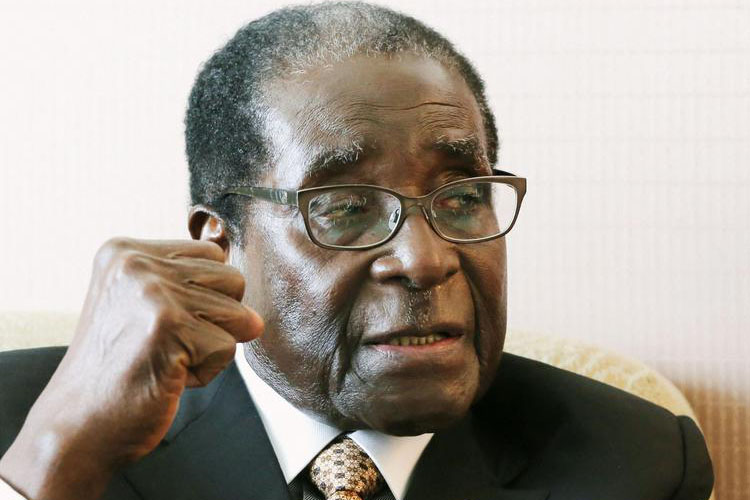
The Sunday Mail

Godwine Mureriwa
In fact, former President Robert Mugabe’s adamant anti-West rhetoric was fast becoming retrogressive and destructive.
Just like at Lancaster in 1979, the Third Chimurenga should end with compromise, reconciliation and re-engagement.
The essence of diplomacy is to achieve international peace and development.
Greg Denning once said history is not the past, it is consciousness of the past used for present purposes.
Truly, our past shapes our present condition and future.
As Zimbabwe celebrates 38 years of Independence, we reflect on the pre-colonial livelihoods of our ancestors and the brutality of the colonial process.
More importantly we reflect on the experiences of the protracted liberation struggle, the path towards political independence, the historic Third Chimurenga and the pain of Western aggression through sanctions. But for the first time, we reflect Independence in an era of new opportunities of global re-engagement.
In the long road to freedom, the land, which is our principal heritage, is central.
It the basis of our political freedom, the source of life, symbol of identity and basis for sustainable economic development.
Once taken from our fore-fathers, fought for by gallant sons and daughters of the soil and now in the hands of its rightful owners, the land is what independence is all about.
It is also the source of present challenges and opportunities.
Inevitably, in the new political dispensation, land tenure and use are the cornerstones for the anticipated economic prosperity.
Today the contentious question is what political-cum economic ideology should shape the broader indigenisation and empowerment policies of government in the context of the emergence of the dominant capitalist-driven globalisation.
Put simply, is it realistic for Zimbabwe to adopt a socialist approach as it opens itself for business and seeks to attract foreign investment, especially from western powers it is in the process of engaging after two decades of isolation?
I remember in the late 1990s my lecturer, the late Professor Masipula Sithole, saying to our class that in 1987 he had been asked by another Professor from the then Soviet Union “why is Zimbabwe going where we are coming from?”.
Then, the Zanu-PF Government was predominantly socialist and even attempted to establish a One Party State under Mr Robert Mugabe.
His erstwhile colleague Edgar Tekere vehemently opposed such centralisation of power and formed his ZUM, which paved the way for multi-party democracy.
Economically, in 1990 the IMF and World Bank foisted the infamous Economic Structural Adjustment Programme on Zimbabwe as an austerity measure. It proved to be disastrous.
It derailed the gains of free education, free health services, infrastructural development, subsidised goods and services, prices controls and other people-centred policies that government had implemented since 1980.
Many were retrenched and the black majority was left in abject poverty.
When government abandoned Esap in 1997, paid unbudgeted gratuities to war veterans in the same and intervened in the DRC war of 1998, the economy further took a nose dive.
The situation was compounded by the effects the illegal economic sanctions that the West collectively imposed because of these domestic and foreign policies, and more so as a response to the “socialist” land reform programme.
In particular, former American President George W Bush said “Zimbabwe has become an ‘unusual’, ‘extraordinary’ and ‘continuing’ threat to US foreign policy – capitalism.”
While China, our all-weather friend, stood by Zimbabwe, amid threats of Western military intervention as the Mugabe regime went a gear up to introduce the 51-49 policy to foreign investors (including indigenisation in the sensitive banking sector), it appeared to shut doors on friends and enemies alike.
One would be tempted to think even China was beginning to silently ask: “Why is Zimbabwe going where we are coming from?”
Zimbabwe’s has to move out the international isolation of the past two decades.
In fact, former President Robert Mugabe’s adamant anti-West rhetoric was fast becoming retrogressive and destructive.
Just like at Lancaster in 1979, the Third Chimurenga should end with compromise, reconciliation and re-engagement.
The essence of diplomacy is to achieve international peace and development.
China’s political ideology has evolved from radical Marxist/Leninist communism, to adaptive scientific socialism, and now capitalism with Chinese characteristics.
As a resource person for Chitepo School of Ideology, I was recently privileged to attend a seminar at which three Professors from the Communist Party of China (CPC) argued that China’s economic model hinges on evolving political change.
From the Confucian tradition of meritocracy, across the political spectrum leaders come through a rigorous process of “selection and election”.
This enhances good governance, competence and innovation. The results are poverty eradication, job creation, local economic growth, social development and increasing environmental protection. China has moved beyond the stereotypical dichotomies of “democracy versus autocracy” of “capitalism versus Communism”.
The current socio-political and economic ideologies are synthesises of historical Chinese values and emerging global practices.
Against that backdrop, Zimbabwe’s new dispensation has been globally recognised and accepted because of the potential for home-grown reform not the circumstances of its birth.
This is why for a long-time even the West preferred “regime reformation” rather than the futile “regime change agenda” that was against their interests, singly or collectively.
This is the time to uphold meritocracy and boost productivity to sustain the gains of the liberation struggle.
Addressing the CPC last week, President Mnangagwa aptly said, “In my party we say if someone makes a slogan, we give him a post.
That must be a thing of the past.”
Perhaps it is also time to emulate the Chinese “keju system” and introduce a civil service examination system.
Godwine Mureriwa is a political analyst. He wrote this article for The Sunday Mail






